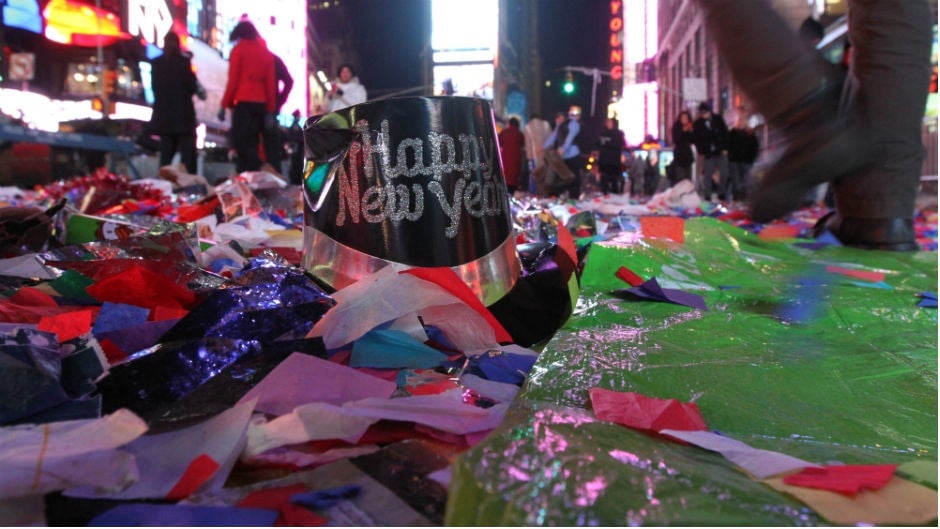Would we be better off celebrating New Year’s at some other time?
New Year’s Day is a holiday that should be all about joyous celebration and hope, but too often ends up with moping and resentment.


New Year’s Day is a holiday that should be all about joyous celebration and hope, but too often ends up with moping and resentment.
In many parts of the Western world–where the January 1 launch date was invented—it’s cold, and dark outside at an absurdly early hour. Your stomach is still full from Christmas. You’ve unwrapped your gifts, your family has gone back home. Now you’re thinking of a New Year’s resolutions—and realize you never fulfilled last year’s.
And then you have to go back to work after the holiday break.
Would you feel better if the new year started on March 1, or May 1… or generally, some other time of year? Many cultures start their year during entirely different seasons. Rosh Hashanah, the Jewish New Year, comes around September and October in the Gregorian calendar, when there’s that lovely early-fall sun to enjoy.
In many countries, the start of a year is tied to an agricultural event, like a harvest, or the planting of fresh crop. In Southeast Asia, many cultures start the year in April, and celebrate with an epic water festival. The Thai holiday of Songkran comes at the end of the dry season, laden with high hopes for abundant rainfall during the wet months. It is a time of ritual cleansing, with modern festivities involving water guns and fun in the sun.
In India, there are several different New Year’s celebrations. Ugadi, for instance, celebrated in the south of the country, falls right after the spring equinox. It makes sense: nature comes to life, the sun is shining and there is hope in the world.
The only thing likely to come to life in January is a gym membership… which too often is wasted.
Even in the Western tradition, January wasn’t always the time for new beginnings. Originally instated by the Romans, the date was abandoned by medieval Christians, who celebrated the new year on March 25. The Gregorian calendar, established in 1582, brought back the January date. Thanks a lot.
Maybe if we celebrated New Year’s in the spring, when the buds are blossoming, and when you can go outside in a T-shirt, the holiday wouldn’t disappoint as much? Or during summer solstice, taking cue from the Swedish midsummer festivities?
The end of the year is a time of reflection, and for many, it’s a time of pessimism. That’s just human nature, Marlynn Wei, a New York-based therapist tells Quartz. “Our brains are trained to look at the negative – things that have gone wrong, mistakes.”
For those living in colder climes, it’s exacerbated by the weather. Seasonal Affective Disorder, or SAD, a seasonal depression, comes to haunt. People can’t exercise outdoors, there’s less sunlight and more mood issues, says Dr Wei.
On New Year’s Eve, there’s also the pressure to celebrate in some special way—which only starts another cycle of expectation and disappointment.
You could just stay in a warm bed and watch all the “Die Hard” movies, as John Oliver suggests. And there’s nothing wrong with that.